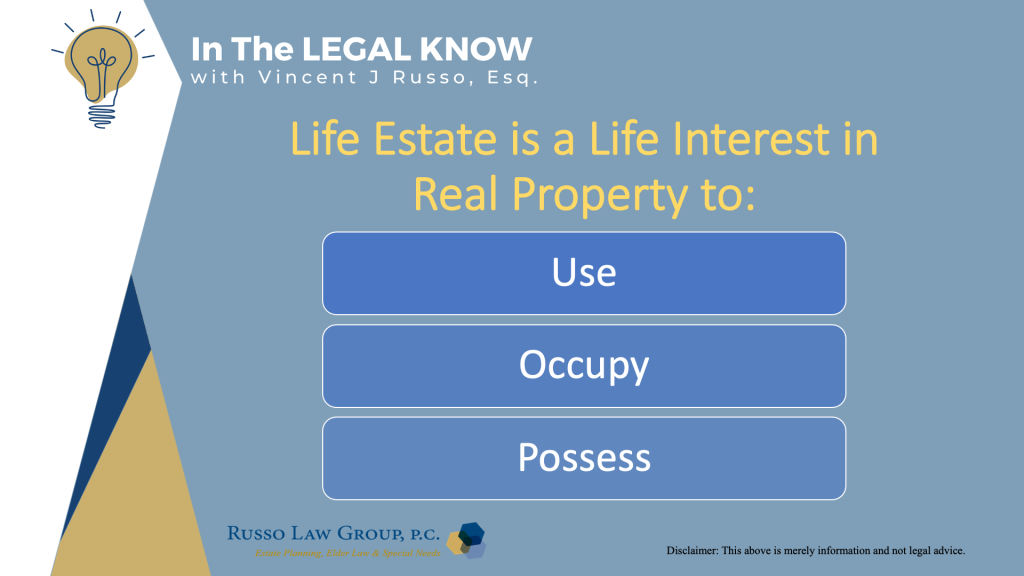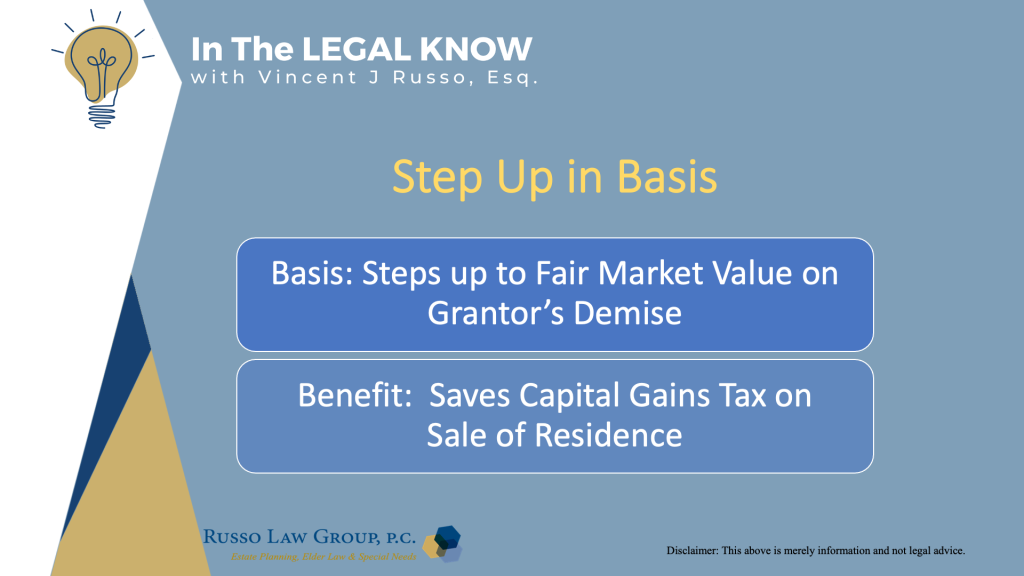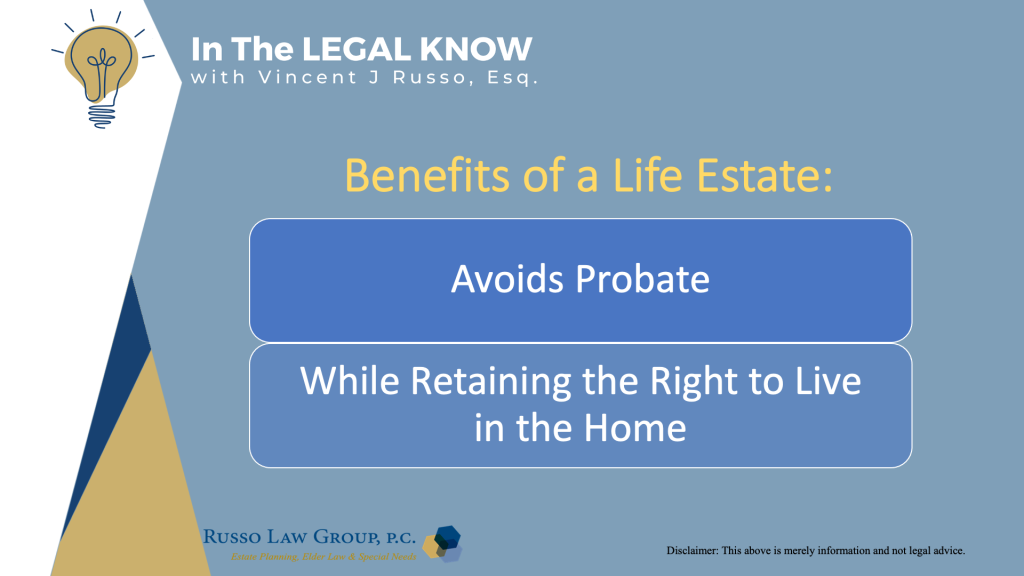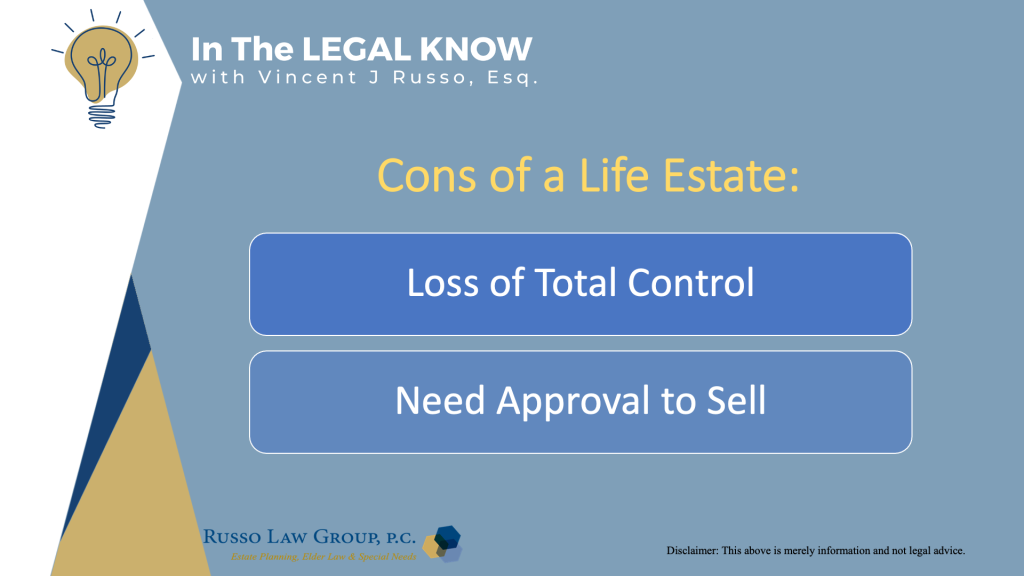This originally aired on the Catholic Faith Network’s show CFN Live: https://youtu.be/aQgwbQkJtC0 How can SSI…

Life Estates: Helpful or Problematic? (Part 1)
This originally aired on the Catholic Faith Network’s show CFN Live: https://youtu.be/mhrYFJpMxZc
There is much to talk about when it comes to life estates – a greatly misunderstood type of real property ownership. Life Estates can be helpful, or they can be problematic.
What Is a Life Estate?

A life estate is when a person has an interest in property that gives the person the right to use, occupy and possess the property for one’s lifetime.
How Does a Life Estate Work?
Let’s say mom wants to pass her home to her son when she passes away. She decides to use a life estate to make the transaction smoother. Mom is called the life tenant, and the son is the remainder person or beneficiary.
Mom continues to live in her home for the remainder of her life if she chooses to and is responsible for making real property tax and insurance payments.
Upon mom’s death, title to the home would immediately pass to her son. This step avoids probate which is one of key benefits of this estate planning strategy.
This is how it would work:

This step up can save significant capital gains taxes when the house is later sold.
How do you create a life estate?
A life estate is typically created in a deed. The deed would need to include a statement reserving the life estate, signed by the grantor and grantee, and then recorded in the county recorder’s office.
One would want to consult an attorney to make sure the deed complies with state law. It is possible to create a life estate for a third party instead of the grantor retaining a life estate.
What are the benefits of creating a Life Estate?
There are several benefits to a Life Estate. Two major benefits are:

- Life estates are valuable options for some families seeking to simplify the estate planning process.
- A life estate helps avoid the probate process upon the life tenant’s death. The property will automatically transfer to the remainderman, making the process simple and easy – a Will is not needed for the transfer to happen. This can provide relief and comfort to the life tenant as they know exactly what will happen to their property upon their death.
- The life tenant can use and occupy their home for the remainder of their life and be transparent with beneficiaries about what will happen with the property upon their death.
Are there any Potential Problems with A Life Estate?
While a life estate can be helpful in some situations; but there can be problems with a life estate.

- In a life estate, the life tenant loses control to make major decisions related to the property without input. For example, if the life tenant wants to sell or lease the home or refinance, they need approval from the remainder person.
- Even if the remainderman agrees that the sale of the home is a good idea, the life tenant shouldn’t expect to get the entire proceeds – they’ll be split based on IRS actuarial tables.
- If the remainder person finds themselves in financial trouble, creditors may be able to file a mortgage lien on the property, which would create a tough situation for the life tenant.
- Lastly, if the life tenant wants to change the beneficiary of the property or have the property returned to them, they will need approval from all remainder person to do so (unless the grantor retains a limited power of appointment in the deed).
The Bottom Line
Life Estates are a tool in the tool kit when implementing estate planning. I suggest that you hire an attorney to help you understand the process of creating a life estate. Talking with an attorney can also help you weigh the pros and cons of a life estate, while also learning more about any state-specific rules you should be aware of.
Want to learn more about life estates?
Click here to read PART 2: TAXES and click here to read PART 3: MEDICAID
We hope you found this article helpful. Contact our office today at 1 (800) 680-1717 and schedule an appointment to discuss what makes sense for you and your loved ones.



This Post Has 0 Comments